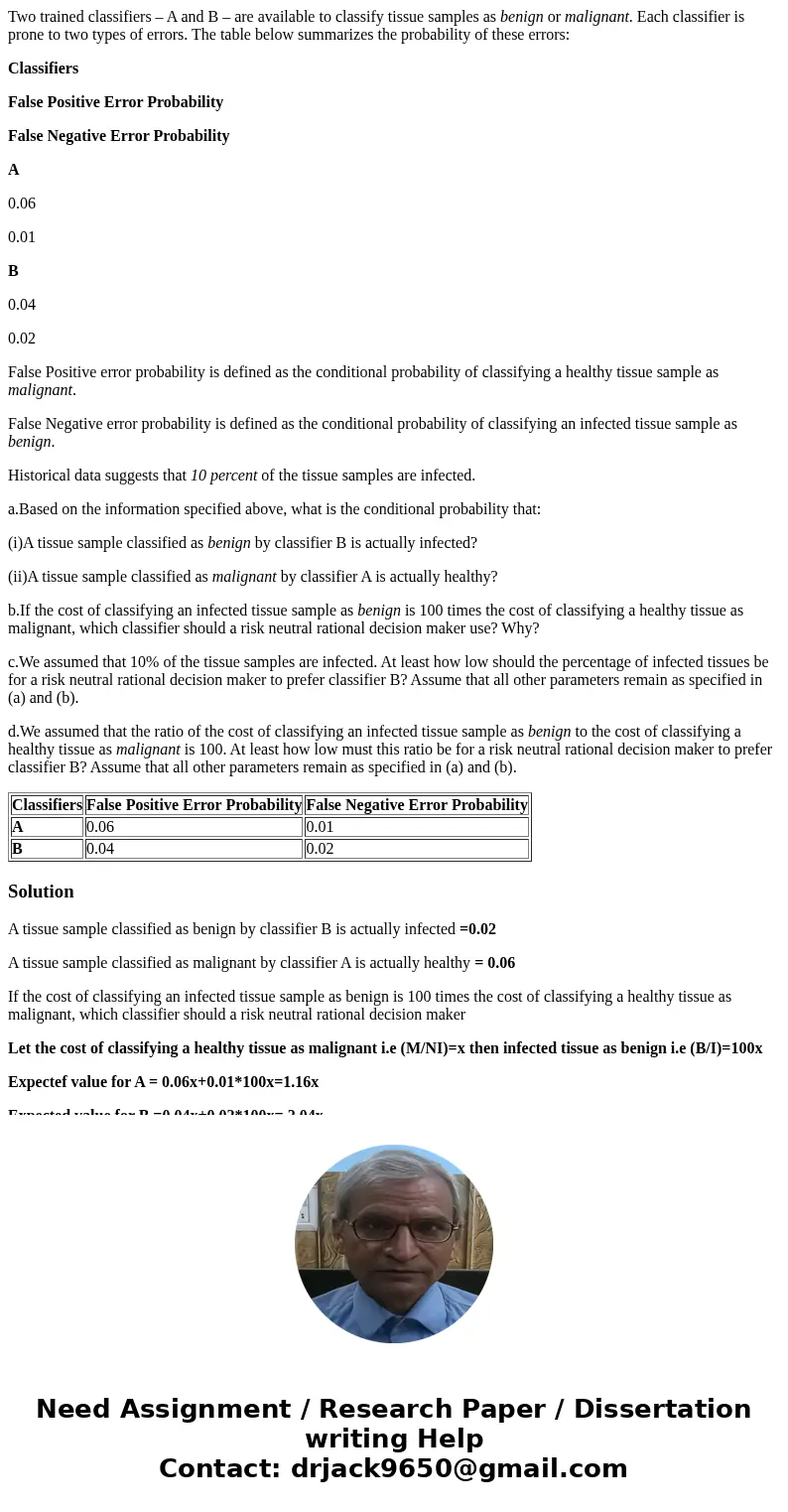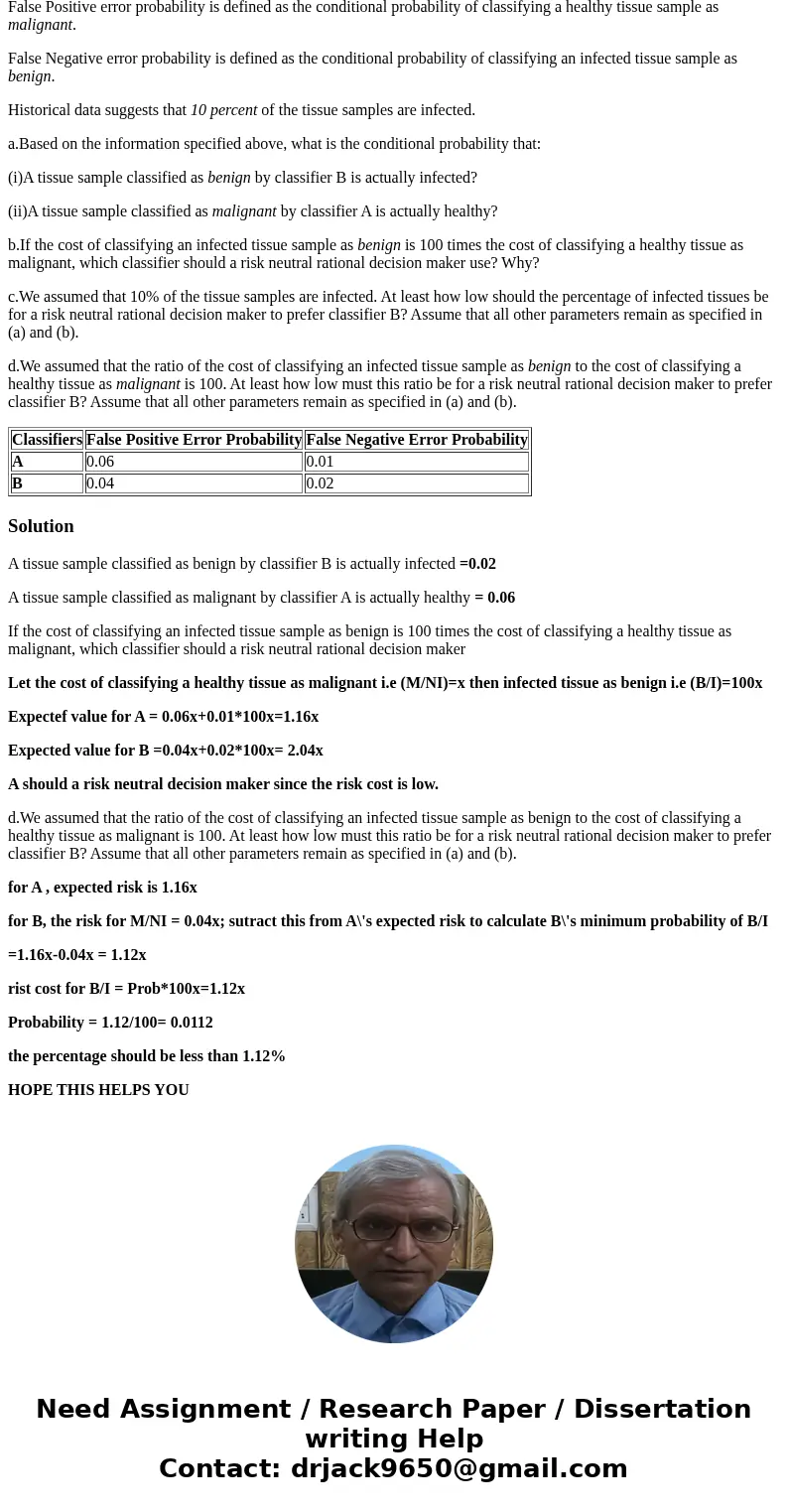Two trained classifiers A and B are available to classify
Two trained classifiers – A and B – are available to classify tissue samples as benign or malignant. Each classifier is prone to two types of errors. The table below summarizes the probability of these errors:
Classifiers
False Positive Error Probability
False Negative Error Probability
A
0.06
0.01
B
0.04
0.02
False Positive error probability is defined as the conditional probability of classifying a healthy tissue sample as malignant.
False Negative error probability is defined as the conditional probability of classifying an infected tissue sample as benign.
Historical data suggests that 10 percent of the tissue samples are infected.
a.Based on the information specified above, what is the conditional probability that:
(i)A tissue sample classified as benign by classifier B is actually infected?
(ii)A tissue sample classified as malignant by classifier A is actually healthy?
b.If the cost of classifying an infected tissue sample as benign is 100 times the cost of classifying a healthy tissue as malignant, which classifier should a risk neutral rational decision maker use? Why?
c.We assumed that 10% of the tissue samples are infected. At least how low should the percentage of infected tissues be for a risk neutral rational decision maker to prefer classifier B? Assume that all other parameters remain as specified in (a) and (b).
d.We assumed that the ratio of the cost of classifying an infected tissue sample as benign to the cost of classifying a healthy tissue as malignant is 100. At least how low must this ratio be for a risk neutral rational decision maker to prefer classifier B? Assume that all other parameters remain as specified in (a) and (b).
| Classifiers | False Positive Error Probability | False Negative Error Probability |
| A | 0.06 | 0.01 |
| B | 0.04 | 0.02 |
Solution
A tissue sample classified as benign by classifier B is actually infected =0.02
A tissue sample classified as malignant by classifier A is actually healthy = 0.06
If the cost of classifying an infected tissue sample as benign is 100 times the cost of classifying a healthy tissue as malignant, which classifier should a risk neutral rational decision maker
Let the cost of classifying a healthy tissue as malignant i.e (M/NI)=x then infected tissue as benign i.e (B/I)=100x
Expectef value for A = 0.06x+0.01*100x=1.16x
Expected value for B =0.04x+0.02*100x= 2.04x
A should a risk neutral decision maker since the risk cost is low.
d.We assumed that the ratio of the cost of classifying an infected tissue sample as benign to the cost of classifying a healthy tissue as malignant is 100. At least how low must this ratio be for a risk neutral rational decision maker to prefer classifier B? Assume that all other parameters remain as specified in (a) and (b).
for A , expected risk is 1.16x
for B, the risk for M/NI = 0.04x; sutract this from A\'s expected risk to calculate B\'s minimum probability of B/I
=1.16x-0.04x = 1.12x
rist cost for B/I = Prob*100x=1.12x
Probability = 1.12/100= 0.0112
the percentage should be less than 1.12%
HOPE THIS HELPS YOU


 Homework Sourse
Homework Sourse